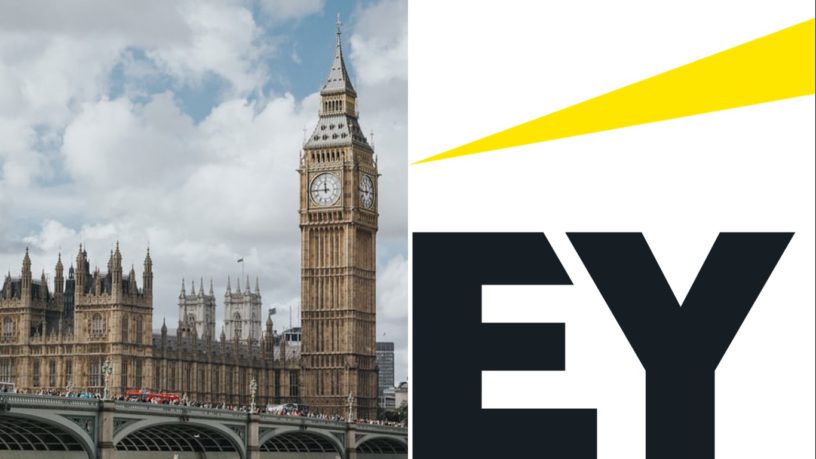By Vish Gain for AMLi
A prominent UK anti-corruption group has called on the British Government to ban accountancy firm EY from public contracts for three years, it said in a statement Monday.
Spotlight on Corruption, a registered charitable company, said it wrote to the government’s procurement body, the Crown Commercial Service, asking it to review whether the accountancy firm Ernst & Young (EY) should be banned from bidding on public contracts following a spate of recent scandals.
EY, considered to be a part of the elite ‘Big Four’ club of accounting firms, is one of the world’s largest and most profitable professional services companies. Headquartered in London, it is currently under investigation by the UK’s Financial Reporting Council for its audits of scandal-ridden private hospital operator NMC Health and investment company London Capital & Finance that collapsed last year.
NMC Health, the former FTSE 100 healthcare group, collapsed this year after discovering that more than $4 billion was apparently hidden from its balance sheet in a large-scale fraud that spanned operations from Abu Dhabi to London.
Earlier this month, NMC Health administrators announced their plans to sue EY for more than £1 billion for accounting negligence.
Abroad, EY has been fighting multiple court cases for its involvement in international audit scandals with a Dubai gold company and the now-insolvent Wirecard.
Recently, an English high court ordered EY to pay $11 million to a former employee who sued the firm on grounds of accounting misconduct concerning the Dubai gold company, Kaloti Jewelry International. The judgement concluded that the firm colluded with the gold company to hide illicit exports and helped obscure audit findings that included suspected money laundering.
On the continent, EY is dousing flames of another fire after failing to identify frauds in German payments processing company Wirecard in what may become one of the largest accounting scandals in German postwar history. On June 25 this year, Wirecard filed for insolvency after revelations that €1.9 billion was ‘missing’.
Spotlight on Corruption said that “in light of EY’s failures in these and other scandals, which we believe may amount to grave professional misconduct that renders EY’s integrity questionable – failures that have seen EY face multiple investigations by regulators across Europe including in the UK – the firm’s suitability for public contracts should be reviewed.”
The group argued that banning companies for a set period of time from public contracts, known as debarment, is increasingly recognised globally as an effective tool to protect the integrity of public contracting and prevent corruption, money laundering, fraud and other misconduct.
“Unless companies like EY, that have a strong monopoly on public contracts, know that they will face consequences for poor behaviour and misconduct, there is little incentive for them to perform those contracts as efficiently and as well as possible,” the statement read.
The ‘Big Four’ — Deloitte, EY, KPMG and PwC — are called so because of their dominance of the global high-value professional services market. Earlier this year, UK watchdog Financial Reporting Council announced that it had told the ‘Big Four’ to separate their audit arms from their consultancy units by 2024 in a major shake-up of the sector.
While the four firms are powerful lobbies in Westminister and other world governments, the sustained series of international scandals reveal a pattern that may urge the UK Government to step up action and implement stricter policies that ensure the primacy of public interest over big business, paralleling the antitrust investigations of Big Tech in the US and the EU.
Share this on:
Follow us on:








